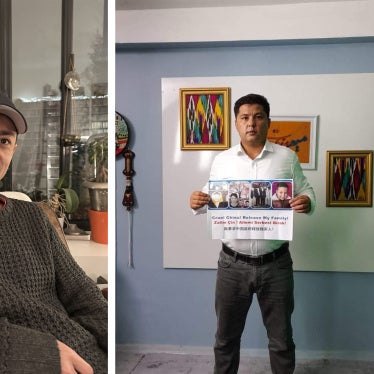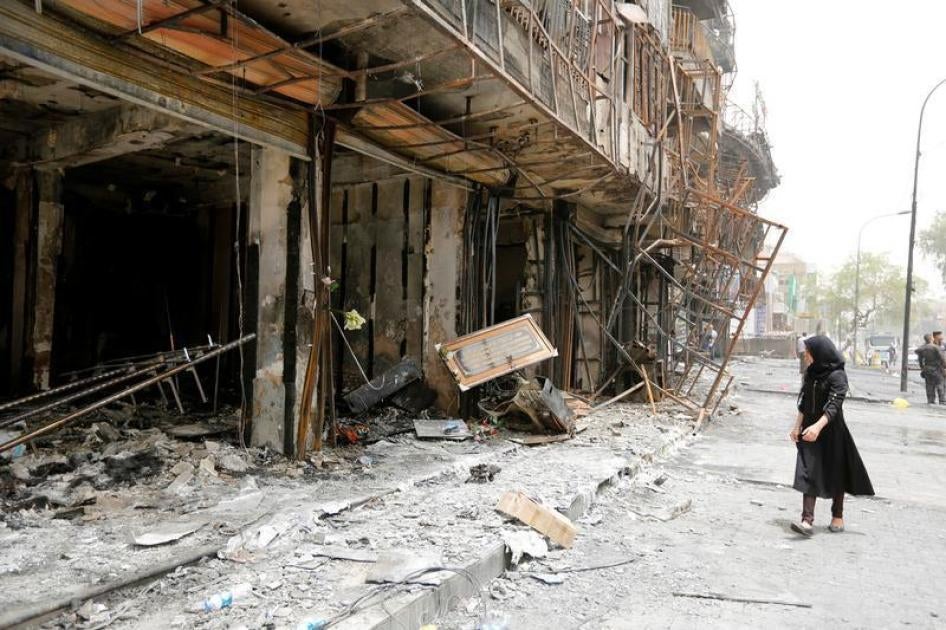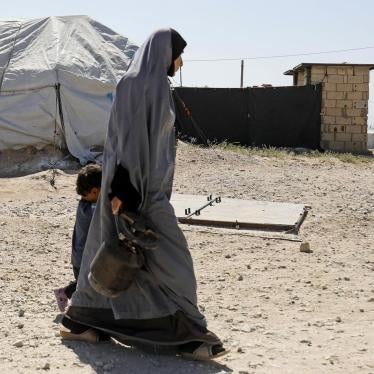I awoke Sunday to the horror of another massive ISIS suicide bombing, this one targeting people shopping for the Eid holiday in Karrada, a district in Baghdad. For the last day and a half, I watched the death toll rise to at least 165 people, another 225 wounded. This was the deadliest attack against civilians in Iraq this year. Later the same day, another suicide attack in al-Shaab area in Baghdad killed at least two civilians. The perpetrators of this latter attack are so far not known.
|
Dispatches
Dispatches: Bloody Attacks a Test of Iraq’s Resolve
Preventing Acts of Revenge, Finding Those Responsible Should be Priority
Your tax deductible gift can help stop human rights violations and save lives around the world.
Region / Country
Most Viewed
-
February 18, 2026
China: Officials Pressuring Uyghurs in France

-
February 18, 2026
Venezuela: Dismantle Repressive Apparatus

-
November 25, 2019
A Dirty Investment

-

-
July 21, 2025
“You Feel Like Your Life Is Over”





